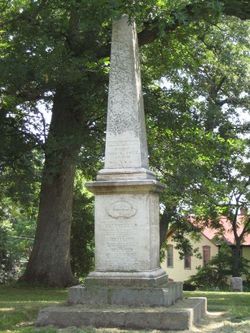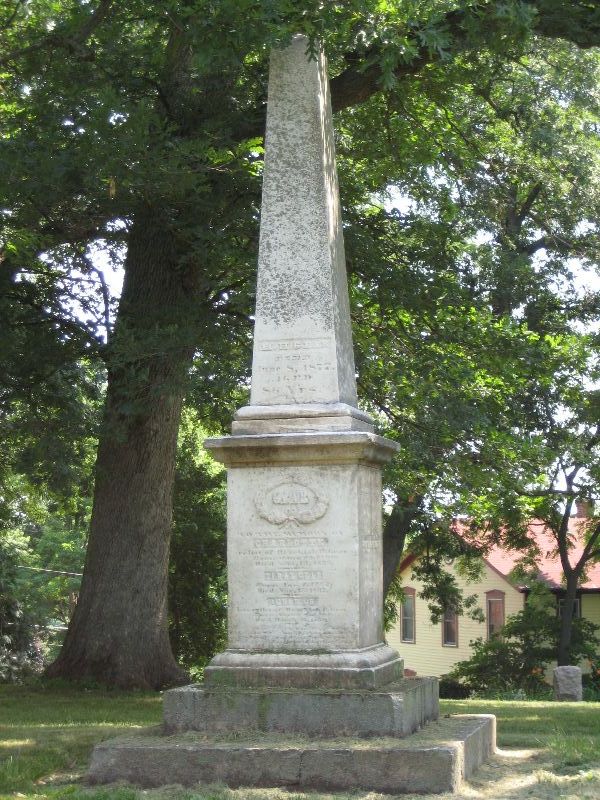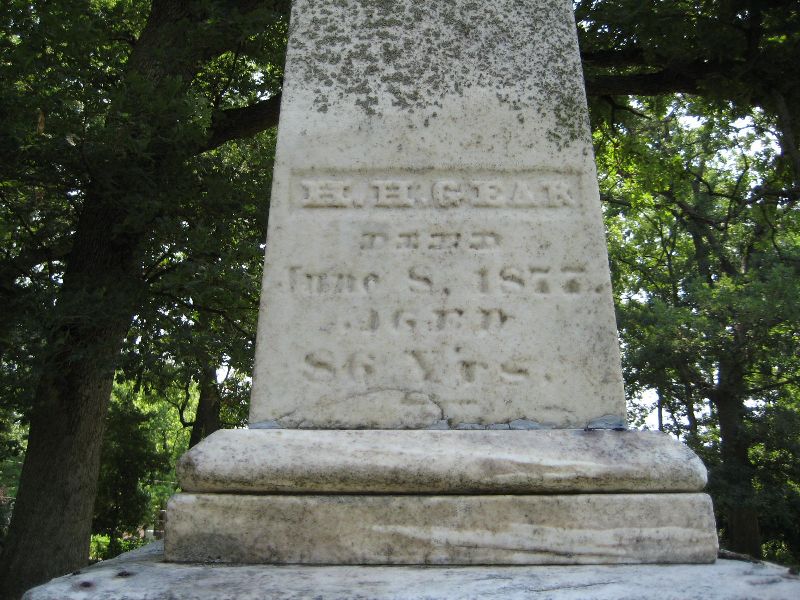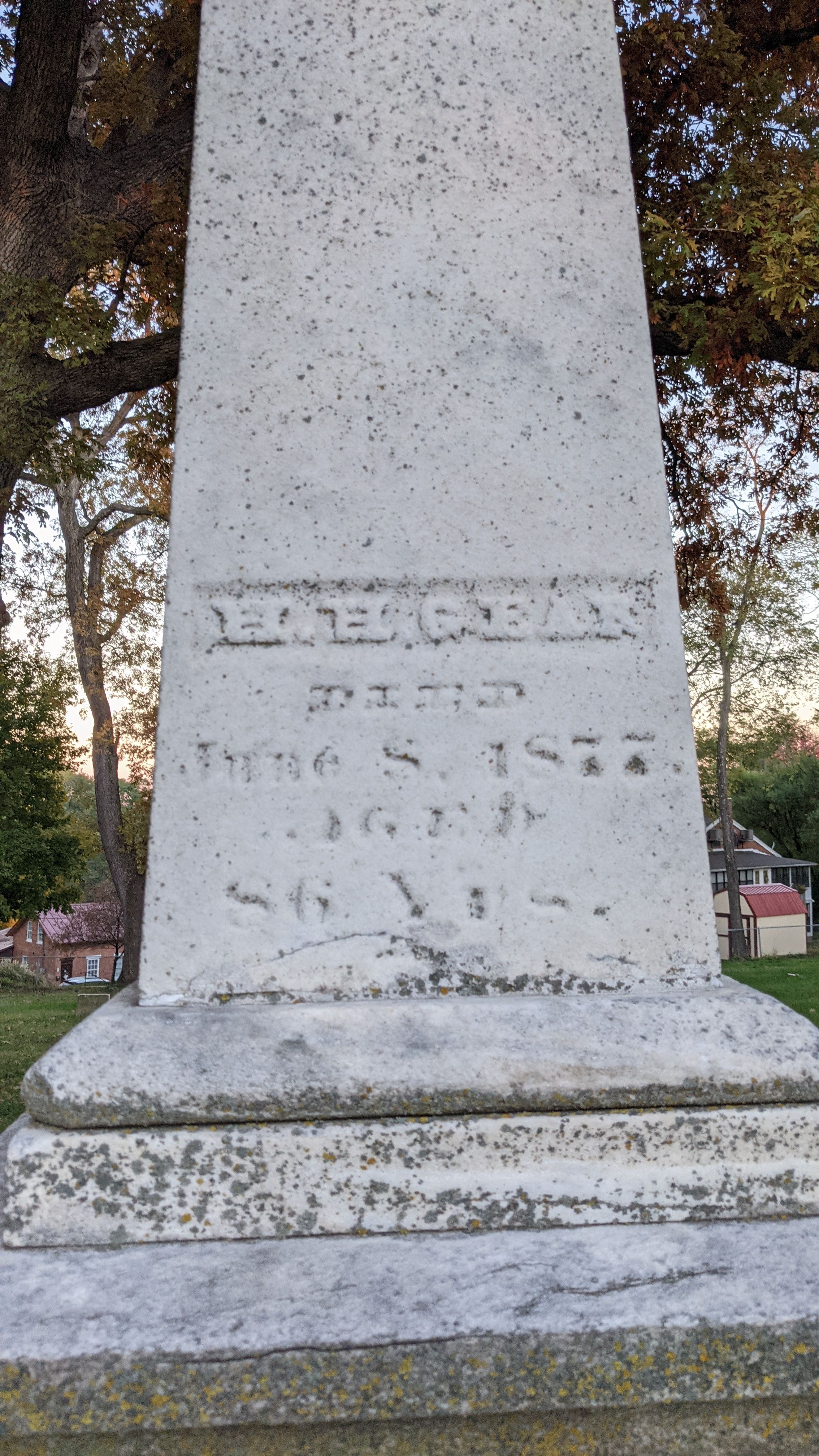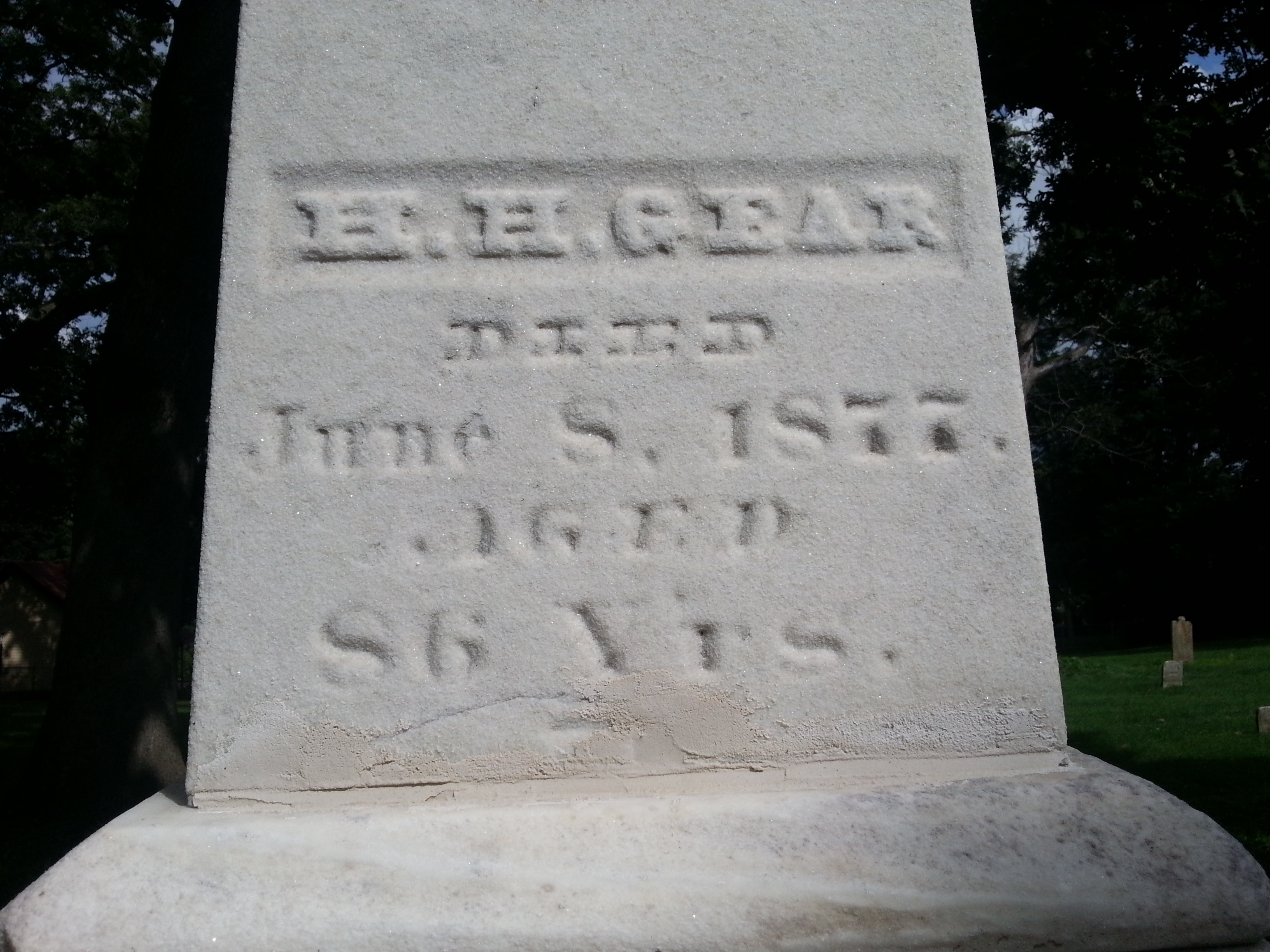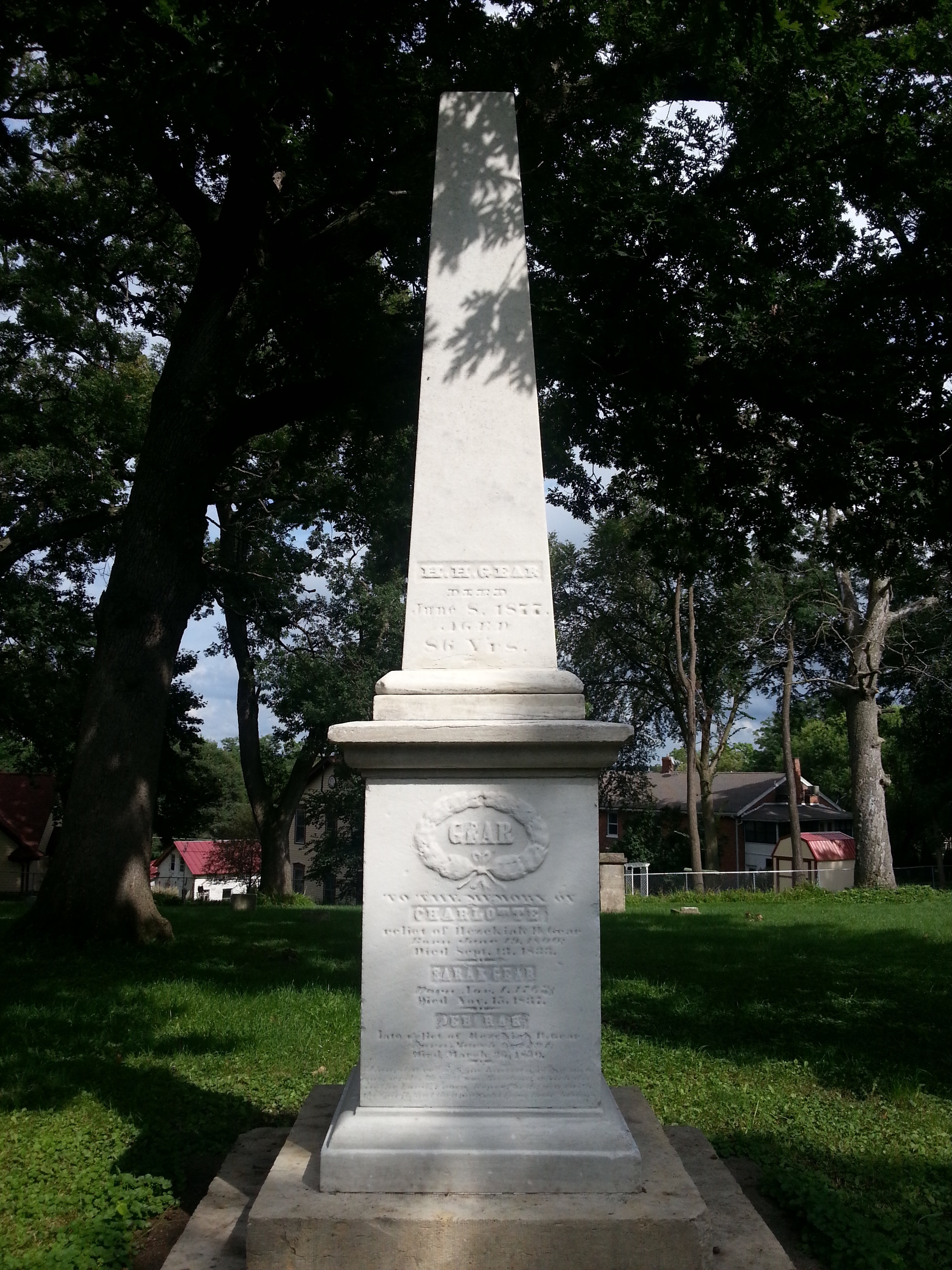Son of Hezekiah and Sarah Gilbert Gear
From the History of Jo Daviess County by H. F. Kett & Company, Chicago, 1878:
Capt. Hezekiah H. Gear who also arrived at the mines in April, 1827 was another man who exercised a powerful influence in this (then) new country. His brother, Charles, had removed to Buncombe, and he lived on Meeker's Bench, near where Benson Hunt lived, for three months, and then removed to Buncombe (or Bunkham, as it is shown on old maps) and located a mining tract about seven miles from Galena, near the Village of Old Council Hill, and called his place "Tower Hill" from a large rock, something in the form of a tower, on his claim. As showing the trial and hardships of the pioneer settlers at that time, Capt. Ger's daughter, Charlotte (who subsequently married Capt. George W. Girdon) relates that when her father build his cabin at Tower Hill, he cut his logs on a steep bluff on the banks of the Fever River, rolled them into the water and towed them, one by one, up stream half a mile to the site he had selected, by tying one end of a rope around the log and the other end around his body, and walking up, sometimes in the water, sometimes on the bank. When he had thus collected a sufficient numbers of logs, the miners in the vicinity helped him raise his cabin. The roof of the cabin was thatched with long prairie grass and covered with sods. The floor of the cabin was the native earth, and as the roof was not water-tight, the situation of the inmates in a rain storm can be imagined. The next year Capt. Gear sawed some planks from pine logs with a whip-saw and laid a floor. It was just after a heavy storm, when it rained indoors harder than it did out, and Mrs. Girdon (then a miss of ten years says:"I never expect to be so happy again, this side of Heaven, as I was when that floor was laid." Gear soon after provided a better roof and the family was better housed; but such was pioneer life in the mines in 1827. Just after the close of the Black Hawk War, in which he participated , he discovered an immense deposit of mineral. Shortly before his death he declared that he had realized from the sale of the 26,000,000 pounds of lead ore, all taken from that mine. He became one of the most wealthy and enterprising men of the Northwest, and at one time he was, perhaps, more extensively engaged in mining and smelting than any other person.
In 1847 Capt. Gear was a member of the State Senate. He was on of the original projectors of the Illinois Central Railroad. He was three times married, and left five children: Charlotte (now Mrs. Girdon,) Alexander H. John C. Clarisse E. and William. Impetuous and indomitable energy, undaunted courage, strictest honesty, and great generosity were the prominent characteristics of Capt H. H. Gear. In the days of his prosperity he contributed liberally to all public and charitable enterprises. He gave to Galena the lots on which its' public school building stands, and established the Episcopal Church in Galena. He was and is a part of the history of Jo Daviess County.
Son of Hezekiah and Sarah Gilbert Gear
From the History of Jo Daviess County by H. F. Kett & Company, Chicago, 1878:
Capt. Hezekiah H. Gear who also arrived at the mines in April, 1827 was another man who exercised a powerful influence in this (then) new country. His brother, Charles, had removed to Buncombe, and he lived on Meeker's Bench, near where Benson Hunt lived, for three months, and then removed to Buncombe (or Bunkham, as it is shown on old maps) and located a mining tract about seven miles from Galena, near the Village of Old Council Hill, and called his place "Tower Hill" from a large rock, something in the form of a tower, on his claim. As showing the trial and hardships of the pioneer settlers at that time, Capt. Ger's daughter, Charlotte (who subsequently married Capt. George W. Girdon) relates that when her father build his cabin at Tower Hill, he cut his logs on a steep bluff on the banks of the Fever River, rolled them into the water and towed them, one by one, up stream half a mile to the site he had selected, by tying one end of a rope around the log and the other end around his body, and walking up, sometimes in the water, sometimes on the bank. When he had thus collected a sufficient numbers of logs, the miners in the vicinity helped him raise his cabin. The roof of the cabin was thatched with long prairie grass and covered with sods. The floor of the cabin was the native earth, and as the roof was not water-tight, the situation of the inmates in a rain storm can be imagined. The next year Capt. Gear sawed some planks from pine logs with a whip-saw and laid a floor. It was just after a heavy storm, when it rained indoors harder than it did out, and Mrs. Girdon (then a miss of ten years says:"I never expect to be so happy again, this side of Heaven, as I was when that floor was laid." Gear soon after provided a better roof and the family was better housed; but such was pioneer life in the mines in 1827. Just after the close of the Black Hawk War, in which he participated , he discovered an immense deposit of mineral. Shortly before his death he declared that he had realized from the sale of the 26,000,000 pounds of lead ore, all taken from that mine. He became one of the most wealthy and enterprising men of the Northwest, and at one time he was, perhaps, more extensively engaged in mining and smelting than any other person.
In 1847 Capt. Gear was a member of the State Senate. He was on of the original projectors of the Illinois Central Railroad. He was three times married, and left five children: Charlotte (now Mrs. Girdon,) Alexander H. John C. Clarisse E. and William. Impetuous and indomitable energy, undaunted courage, strictest honesty, and great generosity were the prominent characteristics of Capt H. H. Gear. In the days of his prosperity he contributed liberally to all public and charitable enterprises. He gave to Galena the lots on which its' public school building stands, and established the Episcopal Church in Galena. He was and is a part of the history of Jo Daviess County.
Family Members
Advertisement
Advertisement
